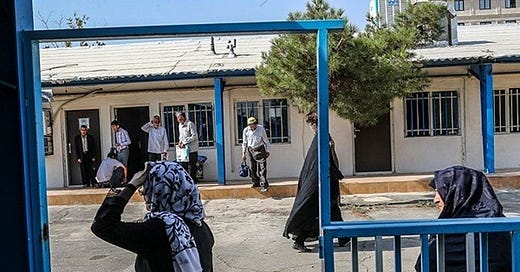Kobra and No Human Being Is “Illegal”
The government and all decision-making and executive bodies must strive to repair the xenophobic discourse in society
According to Mohajir Times quoting Payamema—Shima Vezvaei, communications researcher and social journalist: These days, the political arena is abuzz with talk of “discourse.” It has even been claimed that people voted for the discourse of electoral candidates and that discourse must be considered. Some have even aimed to “engage in discourse” with each other. Misusing the term “discourse” instead of “dialogue” is a long-standing issue. However, just like dialogue, discourses can be constructed within social contexts and through verbal interactions between groups and stakeholders. These discourses, which are institutionalized through the ebb and flow of events and political campaigns, influence societal mentalities, social behaviors, and even policy formation.
Analyzing the language used by presidential candidates and the resulting public discourse, especially in the virtual space, reveals a strengthened anti-immigrant and xenophobic discourse. This seems to be fueled by external and internal factors, leading to new waves of anti-Afghan sentiment in the public sphere. The prevalent anti-immigrant rhetoric globally, not just in Iran, divides immigrants into “legal” and “illegal” categories. Such rhetoric, typically detached from actual immigration laws, rights, policies, and documentation, serves to justify widespread deportations under a veil of legitimacy. There are numerous examples of inhumane immigration policies bolstered by xenophobic discourses.
In recent weeks, news agencies have noted a significant increase in anti-immigrant content, traced back to fake accounts that create trends, shaping government perceptions and escalating tensions between Iran and the Taliban. These virtual waves, despite no significant changes in Afghan immigrants’ presence in Iran or government policies towards them, lack natural and social origins. However, it should not be forgotten that almost all electoral campaigns, which often lacked substantial political programs, resorted to sensationalizing popular issues, thus creating a dangerous and unstable environment for reinforcing anti-immigrant discourse without presenting clear and humane policies for managing immigration issues in the country.
Readers may recall Donald Trump’s first presidential campaign in the United States, where he sought to rally dissatisfied white voters by demonizing Latin and Muslim immigrants and proposing the absurd “border wall” idea, which was supposed to solve all the country’s problems by placing the burden on the fragile shoulders of immigrant children and workers. This idea was so populist and deceitful that it promised a 2,000-mile wall with a “beautiful door” for “legal immigrants.”
Today, even Trump no longer emphasizes this unfeasible idea, knowing it was just a “buzzword” for xenophobic discourse. However, this did not stop election campaigns from using every media and PR tool to garner votes. Mohammad Bagher Ghalibaf talked about building an “eastern wall” to expel immigrants, promising “security” for Iranians. Masoud Pezeshkian pledged to a “complete border closure,” and Alireza Zakani, known for criminalizing immigrants as mayor, boasted about his actions against immigrants in the Farahzad neighborhood.
Today, we know of the peculiar and rare case of Kobra Gholami, a young researcher who, despite having all residency documents, was deported for an unknown reason within just a few hours. The question arises: even if we assume the concept of “legal immigrants” is valid, by what law and ethics should Kobra be deprived of her fundamental human rights as an immigrant citizen?
Social activists and migration researchers have long criticized the neglect of migration issues and the government’s failure to manage this sector effectively, especially during debates and election campaigns. Effective management should address immigrants’ social and economic inclusion, regulate immigration laws and policies, and tackle critical issues like education, labor rights, identity, and documentation. This year, the shift in discourse against immigrants in Iran’s elections was so noticeable that international media, like Foreign Policy, commented on it. However, when campaigns and discourses promoted by candidates or influenced by them fail to address policies affecting actual citizens’ lives, the long-term consequences should not be surprising. In communication science, this approach is called creating noise or “soundbite.”
Hearing about the widespread deportation and harassment of immigrants like Kobra, we sometimes regret advocating for improved living conditions for immigrants. We may think it is better to leave the informal lives of immigrants untouched and focus on recognition and interaction. The government and all decision-making and executive bodies must strive to repair the xenophobic discourse in society. They must be accountable and fulfill their duty towards immigrants as a vital part of Iran’s population and manage the issue of migration effectively, ensuring that people like Kobra can stay, work, live, and contribute to building and improving this country.






